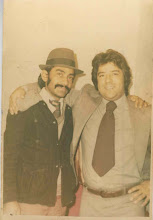Dienstag, 13. Juli 2010
THANKS FOR SUPPORTING US
Your help gives us hope and the possibility to realize our dream!
...
Thanks for funding via:http://www.indiegogo.com/Nightingale
- Nicolas Bourquin, Berlin
- Kunal Jhaveri, Mumbai
- Claudine Bourquin, Tramelan
Mittwoch, 19. Mai 2010
Die Regisseurin zu ihrem Film
Directors Note
Who was Ahmad Zahir?
Wer war Ahmad Zahir?
Zahir wurde am 13. Juni 1946 in Laghman, in der Provinz Nagarhar, als Sohn von Dr. Abdul Zahir, der unter König Zahir Schah in den 60er Jahren Ministerpräsident war, geboren.
Er sang seine Lieder in Pashto, Dari, Hindi und Englisch und gab Konzerte in Indien, im Iran, in Australien, Europa und den Vereinigten Staaten. Durch seine musikalischen Interpretationen der geschätzten alten Dichter wie Hafiz oder Rumi, sang er sich in die Herzen der Dari- und Farsi- sprechenden Nationen.
Ahmad Zahir ist bei allen gesellschaftlichen Schichten, Stämmen und Völkern Afghanistans beliebt und anerkannt. Er wurde die Symbolfigur für die nationale Einheit. Wie viele, begrüßte Ahmad Zahir zunächst die Ausrufung der Republik 1973 durch Daud. Schnell aber wurde offensichtlich, dass Daud und seine Gruppe nur leere Versprechungen machten, eine Diktatur aufbauten und eine hegemoniale Politik betrieben.
In seinen Liedern erhob Ahmad Zahir seine Stimme und kritisierte die Politik Dauds öffentlich. Ihre provokanten Inhalte entfachten kontroverse Diskussionen und führten auf Druck der damaligen Regierung zum Boykott seiner Musik in vielen Radiosendern. Der Höhepunkt dieser Anfeindung durch die Regierung war die Inhaftierung Ahmads für einige Monate.
Am 13. Juni 1979 starb Ahmad Zahir mit nur 33 Jahren. Er stürzte mit seinem Auto in eine Schlucht unterhalb des bekannten Salang Passes, Afghanistans höchster Bergstrasse. Am Tag der Beerdigung wollte jeder seine Totenbahre tragen. Tausende seiner Landsleute, selbst Frauen - die eigentlich nicht am Totenzug und am Begräbnis teilnehmen dürfen - begleiteten ihn bis zu seinem Grab. Ahmad Zahir wurde mit einer beispiellosen Zeremonie geehrt, die selbst den Königen und Staatsmännern Afghanistans in der Moderne noch nicht beschert wurde.
Die meisten Afghanen glauben bis heute nicht an einen Unfall, sondern sind davon überzeugt, dass Ahmad Zahir geplant getötet wurde. Die Umstände seines Todes wurden nie offiziell aufgeklärt.
Während des Taliban-Regimes wurde sein Grab mehrfach zerstört, es war verboten seine Musik zu hören. Heute ist es wieder aufgebaut - Freunde und Fans pilgern dorthin. Jedes Jahr gedenken hunderte von Besuchern Ahmad Zahir an seinem Todestag.









